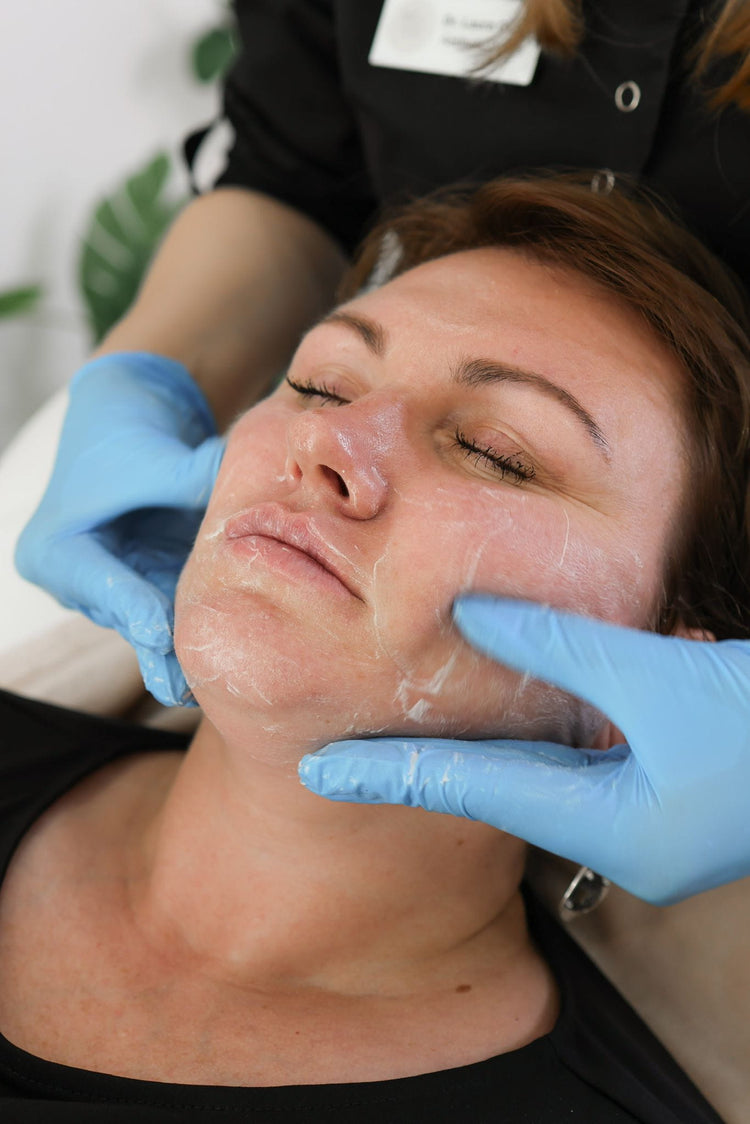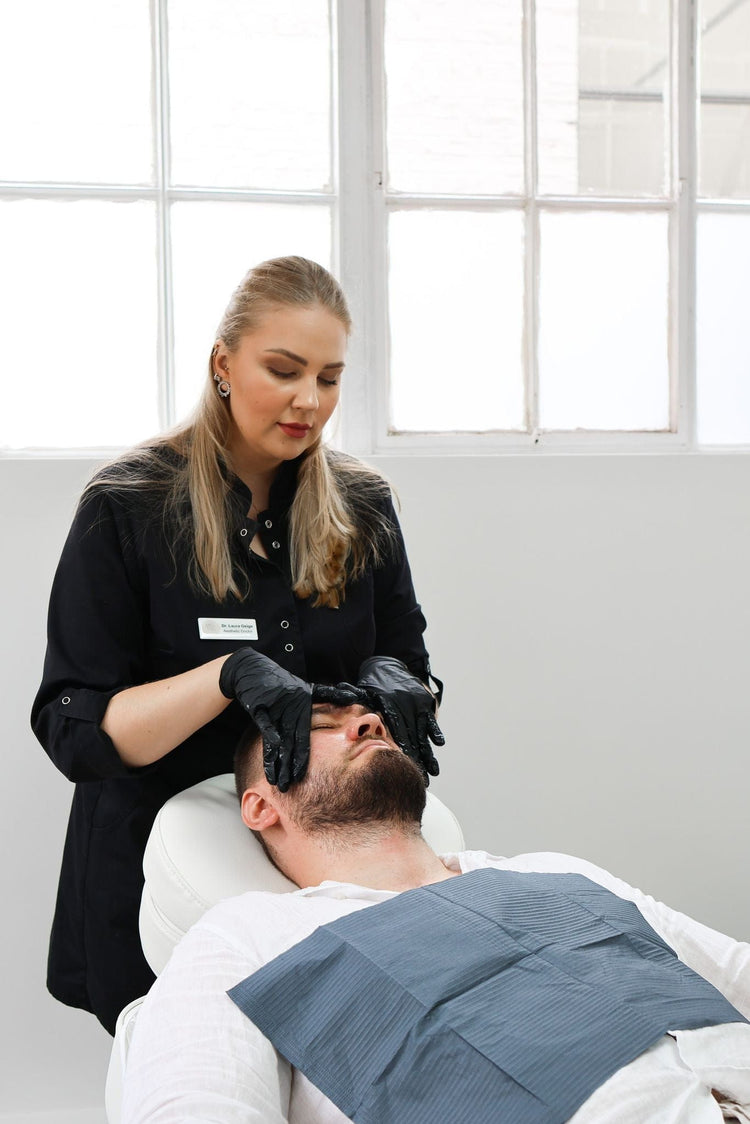The Benefits of Virtual Skincare Consultations
In an era of increasing digital convenience, the UK skincare industry has embraced innovation with open arms. Virtual skincare consultations have emerged as a transformative approach, offering patients unprecedented access to expert advice and personalized treatment recommendations from the comfort of their homes.
Convenience and Accessibility
One of the most significant benefits of virtual skincare consultations is the unparalleled convenience they offer. Patients no longer need to navigate busy city streets or spend valuable time commuting to appointments. Instead, they can connect with a dermatologist or skincare specialist from the comfort of their own living rooms, eliminating travel time and hassle.
Moreover, virtual consultations enhance accessibility for individuals residing in remote areas or those with mobility limitations. Geographical constraints no longer pose a barrier to receiving expert skincare advice. This expanded access empowers a wider range of people to prioritize their skin health and seek professional guidance.
Cost-Effectiveness
Virtual skincare consultations have gained significant traction in the UK due to their remarkable cost-effectiveness. Eliminating the need for physical office space reduces overhead expenses for practitioners, allowing them to offer more competitive pricing. Patients also benefit financially as travel costs, parking fees, and lost productivity associated with in-person appointments are eliminated.
Furthermore, virtual consultations often require shorter appointment durations compared to traditional in-person sessions. This efficiency translates into lower consultation fees for patients while still allowing them to receive valuable expert advice and treatment recommendations.
Expert Access
The rise of virtual skincare consultations in the UK is driven by a desire for convenience, accessibility, and cost-effectiveness. These online consultations allow patients to connect with dermatologists and skincare specialists remotely, eliminating the need for physical travel and saving valuable time.
For individuals living in rural areas or with mobility restrictions, virtual consultations provide unprecedented access to expert advice. Geographical barriers are removed, enabling a wider range of people to prioritize their skin health and seek professional guidance.
Financially, virtual consultations offer significant benefits for both patients and practitioners. Reduced overhead costs for practitioners allow them to offer more competitive pricing. Patients benefit from lower consultation fees, eliminated travel expenses, and saved time that would have been spent commuting.
Technological Advancements Driving Growth
Technological advancements are rapidly transforming the healthcare industry, and the UK skincare sector is no exception. Virtual skincare consultations have emerged as a prominent trend, driven by consumer demand for convenience, accessibility, and cost-effectiveness.
Telemedicine Platforms
The rise of virtual skincare consultations in the UK reflects a broader societal shift towards digital solutions. The convenience they offer is a major draw for patients accustomed to on-demand services in other sectors.
Telemedicine platforms provide a platform for dermatologists and skincare specialists to connect with patients remotely, overcoming geographical limitations and making expert advice accessible to a wider audience.
The cost savings associated with virtual consultations are also significant. By eliminating the need for physical office space and reducing travel expenses for both patients and practitioners, these platforms offer a more affordable option for skincare services.
Artificial Intelligence and Image Analysis
Virtual skincare consultations have revolutionized the industry in the UK by offering unparalleled convenience and accessibility to expert advice. Patients can now connect with dermatologists from the comfort of their homes, eliminating travel time and costs.
This technology is particularly beneficial for individuals residing in remote areas or those with mobility limitations, breaking down geographical barriers to quality skincare. The cost-effectiveness of virtual consultations makes them an attractive option for both patients seeking affordable treatments and practitioners looking to streamline operations.
The increasing popularity of virtual skincare consultations demonstrates a growing trend towards embracing digital solutions within the healthcare sector. Advancements in artificial intelligence and image analysis further enhance these online platforms, enabling dermatologists to provide more accurate diagnoses and personalized treatment recommendations based on detailed skin assessments conducted remotely.
High-Speed Internet Connectivity
Technological advancements have been instrumental in driving the growth of virtual skincare consultations in the UK. High-speed internet connectivity is a cornerstone of this trend, enabling seamless video calls between patients and dermatologists or skincare specialists.
The reliable and fast internet speeds allow for smooth video conferencing, ensuring clear communication and high-quality visual assessments of the patient’s skin condition. This technological infrastructure is essential for virtual consultations to function effectively, providing a platform for remote diagnosis, personalized treatment recommendations, and ongoing skincare support.
Impact on the Skincare Industry
The UK skincare industry is embracing digital innovation with virtual skincare consultations becoming increasingly popular.

Shift in Consumer Behavior
The rise of virtual consultations has significantly impacted the skincare industry in the UK by shifting consumer behavior towards convenience, accessibility, and cost-effectiveness.
Consumers are now accustomed to on-demand services in various sectors, and they expect the same level of convenience in healthcare. Virtual consultations cater to this demand by eliminating the need for physical travel and offering flexible appointment scheduling.
The accessibility aspect is equally important. Virtual consultations break down geographical barriers, allowing individuals residing in remote areas or with mobility limitations to access expert skincare advice.
Furthermore, the cost-effectiveness of virtual consultations is a major driving force behind their popularity. Both patients and practitioners benefit from reduced expenses associated with travel, physical office space, and shorter appointment durations.
Personalized Treatment Plans
Virtual skincare consultations have revolutionized the UK skincare industry by offering unparalleled convenience, accessibility, and cost-effectiveness. Patients can now connect with dermatologists and skincare specialists remotely, eliminating the need for physical travel and saving valuable time.
This shift towards virtual consultations has significantly impacted treatment plans, allowing for more personalized approaches.
Dermatologists can leverage technology to analyze patient photos, conduct thorough skin assessments, and develop tailored treatment plans based on individual needs and concerns.
Furthermore, virtual platforms enable ongoing communication and follow-up appointments, ensuring that patients receive continuous support and guidance throughout their skincare journey.
Increased Transparency and Education
The rise of virtual skincare consultations has significantly increased transparency and education within the UK skincare industry. Patients have unprecedented access to information about their skin conditions and treatment options.
During virtual consultations, dermatologists can explain diagnoses clearly, answer patient questions in detail, and provide visual aids to illustrate complex concepts. This open communication empowers patients to make informed decisions about their skincare.
Moreover, the availability of online resources and educational materials often provided by practitioners enhances patient understanding. Virtual platforms allow for the sharing of informative content such as articles, videos, and personalized skin care regimens, fostering a more proactive approach to skincare.

Challenges and Considerations
The rise of virtual skincare consultations in the UK presents both exciting opportunities and unique challenges. While offering undeniable convenience, accessibility, and cost-effectiveness, this shift demands careful consideration of factors like data privacy, technological infrastructure, and the potential impact on the doctor-patient relationship.
Digital Divide and Access to Technology
- Digital Divide and Access to Technology: A key challenge is ensuring equitable access to virtual consultations. Individuals without reliable internet access or the necessary technological devices may be excluded from reaping the benefits of this innovation. Bridging the digital divide requires investment in infrastructure, affordable devices, and digital literacy programs.
- Data Privacy and Security: Protecting patient data during virtual consultations is paramount. Robust cybersecurity measures are essential to safeguard sensitive health information transmitted online. Adherence to strict data privacy regulations and encryption protocols is crucial to maintain patient trust and comply with legal requirements.
- Regulation and Licensing:** Clear guidelines and regulations are needed to ensure the quality and safety of virtual skincare consultations. Establishing licensing criteria for practitioners who offer teleconsultations and defining scope of practice are essential for maintaining professional standards and patient protection.
Data Privacy and Security Concerns
The rise of virtual skincare consultations in the UK presents both exciting opportunities and unique challenges. While offering undeniable convenience, accessibility, and cost-effectiveness, this shift demands careful consideration of factors like data privacy, technological infrastructure, and the potential impact on the doctor-patient relationship.
- Digital Divide and Access to Technology: A key challenge is ensuring equitable access to virtual consultations. Individuals without reliable internet access or the necessary technological devices may be excluded from reaping the benefits of this innovation. Bridging the digital divide requires investment in infrastructure, affordable devices, and digital literacy programs.
- Data Privacy and Security: Protecting patient data during virtual consultations is paramount. Robust cybersecurity measures are essential to safeguard sensitive health information transmitted online. Adherence to strict data privacy regulations and encryption protocols is crucial to maintain patient trust and comply with legal requirements.
- Regulation and Licensing:** Clear guidelines and regulations are needed to ensure the quality and safety of virtual skincare consultations. Establishing licensing criteria for practitioners who offer teleconsultations and defining scope of practice are essential for maintaining professional standards and patient protection.
Lack of Physical Examination
One significant challenge posed by virtual consultations is the lack of a physical examination. While video calls allow for visual assessments, they cannot fully replicate the detailed tactile examination that dermatologists perform in person.
This absence of a physical touch can limit the ability to accurately diagnose certain skin conditions, particularly those requiring palpation to assess texture, lesions, or lymph node involvement. It may also make it more difficult to identify subtle changes in skin tone or texture that could indicate underlying issues.
Future Outlook for Virtual Skincare Consultations
The future outlook for virtual skincare consultations in the UK appears bright, fueled by continued advancements in technology and evolving consumer preferences. As high-speed internet access becomes more widespread and user-friendly platforms proliferate, these online consultations are poised to become even more accessible and mainstream.
Continued Technological Advancements
The future of virtual skincare consultations in the UK looks promising. Advancements in artificial intelligence (AI) and image analysis will play a significant role. AI-powered tools can analyze skin images with high accuracy, assisting dermatologists in diagnosing conditions, recommending treatments, and tracking progress over time.
Furthermore, augmented reality (AR) and virtual reality (VR) technologies have the potential to enhance virtual consultations. AR could allow patients to virtually “try on” different skincare products or visualize treatment results before committing to them. VR might be used to create immersive educational experiences, helping patients better understand their skin conditions and treatment options.
As technology evolves, we can expect even more personalized and interactive virtual skincare experiences.
Expansion of Services Offered
The future of virtual skincare consultations in the UK appears bright, driven by a confluence of factors: evolving consumer preferences, technological advancements, and increasing accessibility.
One key driver is the growing demand for convenient healthcare solutions. Consumers are increasingly accustomed to on-demand services across various sectors and expect the same level of convenience in healthcare. Virtual consultations cater to this demand by eliminating travel time and offering flexible scheduling options.
Technological advancements will further propel the growth of virtual skincare. Artificial intelligence (AI) and machine learning algorithms will enhance diagnostic accuracy, enabling virtual platforms to analyze skin images and identify potential issues with greater precision.
Augmented reality (AR) and virtual reality (VR) have the potential to revolutionize the user experience. AR could allow patients to virtually “try on” different skincare products or visualize treatment outcomes before committing. VR might create immersive educational experiences, helping patients understand their skin conditions and treatment options more effectively.
Furthermore, the expansion of services offered through virtual consultations will be a major trend. Beyond basic consultations, platforms could offer remote monitoring of skin conditions, personalized treatment plans, access to online support groups, and even tele-pharmacy services for dispensing prescribed skincare products.
While virtual consultations offer undeniable advantages, it’s crucial to address potential challenges. Ensuring equitable access for all demographics, regardless of their technological resources or location, is paramount. Robust data privacy and security measures must be in place to safeguard patient information.
Additionally, ongoing dialogue and collaboration between dermatologists, technology developers, and regulatory bodies are essential to establish clear guidelines, maintain professional standards, and ensure the ethical and responsible use of virtual skincare technologies.
Integration with Traditional Dermatology Practices
The future of virtual skincare consultations in the UK appears bright, driven by a convergence of factors: increasing consumer demand for convenient healthcare options, rapid technological advancements, and expanding accessibility.
One key driver is the rising consumer expectation for on-demand services across various sectors. Virtual consultations align with this demand by eliminating travel time and offering flexible appointment scheduling, appealing to busy lifestyles and geographical constraints. Technological advancements like artificial intelligence (AI) will further enhance these platforms’ capabilities. AI-powered image analysis can assist dermatologists in diagnosing skin conditions more accurately and efficiently, providing personalized treatment recommendations based on individual patient needs.
The integration of virtual consultations into traditional dermatology practices is already underway. Some practices are adopting a hybrid model, offering both in-person and virtual appointments to cater to diverse patient preferences. This allows patients to choose the consultation format that best suits their needs, while practitioners can leverage technology to optimize their workflows and expand their reach.
The key to successful integration lies in a thoughtful approach that balances the benefits of technology with the importance of human connection. Virtual consultations should be seen as a complementary tool to enhance, not replace, traditional in-person care. Providing patients with clear information about the limitations and advantages of virtual consultations is crucial for setting realistic expectations and ensuring patient satisfaction.
Overall, the future outlook for virtual skincare consultations in the UK is promising. As technology continues to evolve and consumer demand for convenient healthcare grows, these online platforms are poised to become an integral part of the dermatology landscape, improving accessibility, efficiency, and personalized care.
Book your facial rejuvenation treatment with Dr. Laura Geige at It’s Me & You Clinic
